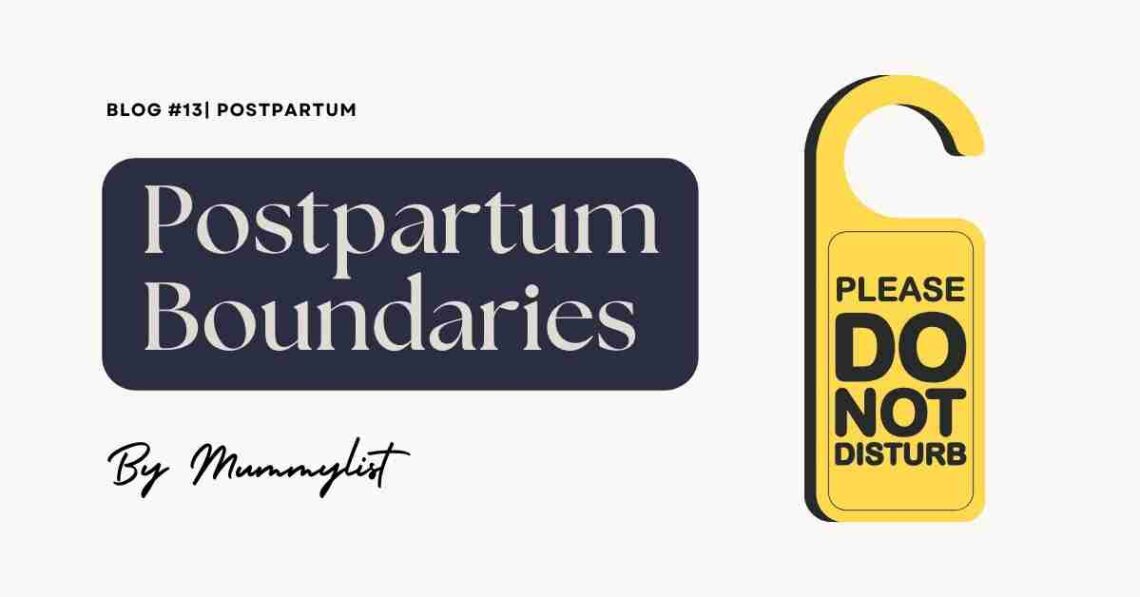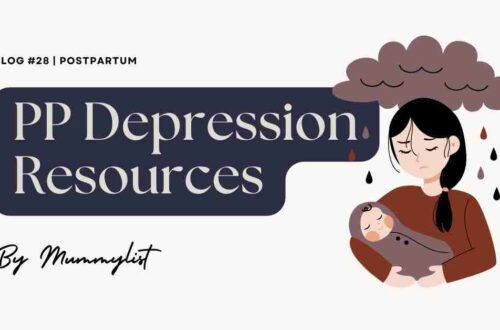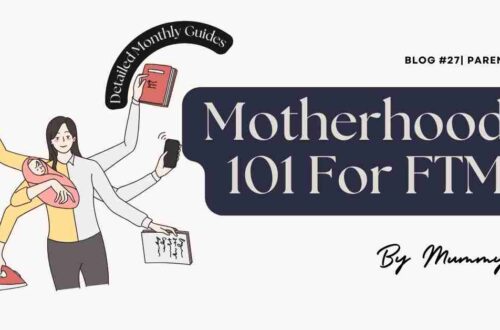The content on our parenting website is provided for informational purposes only. It is not a substitute for professional advice and should not be construed as such. We strive to provide accurate and up-to-date information, but the ever-evolving nature of parenting and healthcare may necessitate changes. By using our website, you agree to the terms of this disclaimer. For more details please go to our Disclaimer Page.
Postpartum care is not just about physical recovery; it’s also about mental health too. A significant, often overlooked, aspect of this involves managing stressors, especially those stemming from the people closest to us – our family. Studies show that a large portion of new mothers experience heightened stress due to family dynamics during the postpartum period. Hence, setting clear boundaries with family becomes not just important, but necessary for a peaceful postpartum experience.
Why Setting Postpartum Boundaries with Family is Important
Many of us are conditioned to prioritize others’ happiness, sometimes at the cost of our own needs and wants. This tendency can become particularly problematic during the vulnerable postpartum period.
Without pre-established boundaries, new mothers might suppress their feelings to avoid conflict, leading to internalized resentment, or, conversely, to outbursts of frustration. In the delicate time following childbirth, where emotions and physical exhaustion run high, setting boundaries is key to maintaining mental well-being and family harmony.
Types of Postpartum Boundaries to Consider
Visitation (Postpartum)
Clearly define your comfort levels regarding hospital and home visits post-delivery. Some people may enjoy the company of family, others may not. It’s okay to want privacy during these early days with your baby – which is what happened in my case.
I personally am extremely thankful for the peace and quiet that I enjoyed during the period of recuperation. I was so exhausted and physically in pain I could not for the life of me understand how I would be in any condition to host any one.
Example: “We prefer only immediate family to visit in the first two weeks and no visitors in the hospital/ home. We need this time to bond and recover.”
As you become more comfortable with visitors, continue to manage your boundaries. Set specific days and times for visits, and limit the duration to ensure you get enough rest and personal time. For instance:
Example: “I need an hour of quiet time in the afternoon for my own rest. I’d appreciate it if we could keep the house peaceful during this time.“
Handling of Baby
The handling of your baby by visitors can be a sensitive issue, especially in the current health climate. For those who are particularly concerned, like myself, it’s important to set clear guidelines. This also includes discussing hygiene practices like hand-washing or mask-wearing (where necessary).
Example: “Please wash your hands before holding the baby, and we’re avoiding passing the baby around too much to reduce overstimulation.” OR “Please do not kiss the baby as their immune system is still developing and can catch bugs easily“
Help with Chores
Postpartum recovery can be overwhelming, and household chores (especially if you don’t have a confinement nanny or helper) can add to the stress. Don’t hesitate to ask for help and assign specific tasks to family members.
Example: “It would be really helpful if someone could take care of laundry and dishes. These are tasks that are currently overwhelming for me.”
Tip: Assign specific tasks to willing family members. This helps them feel involved and eases your load.
Social Media Sharing
In the age of digital footprints, it’s crucial to set boundaries about what gets shared on social media regarding your baby and your birth experience.
Example: “We’re not comfortable with photos of our baby being shared on social media. We want to control our child’s digital footprint.” OR be explicit “We don’t want random people to have access to baby’s photos, so please don’t share his/her photos on Facebook, Whatsapp etc. with your friends that we don’t know.“
Tip: Clearly state your policy on social media sharing and the reasons behind it to ensure everyone respects your wishes.
How to Voice Your Boundaries
United Front with Partner:
- Action: Discuss and agree on boundaries with your partner first. Present them together to your family.
- Benefit: This shows that you’re both in agreement and supportive of each other’s decisions.
Clarity and Directness:
- Action: Be specific about what you’re comfortable with and what you’re not. Avoid vague statements.
- Benefit: Reduces the chances of misunderstandings and ensures your boundaries are taken seriously.
Communicate Early:
- Action: Start having these conversations during pregnancy, not after the baby arrives.
- Benefit: Gives your family time to adjust to your expectations and reduces stress post-delivery.
Practice or Write it Out:
- Action: If you’re nervous about direct confrontation, write down your thoughts or practice what you want to say.
- Benefit: Helps you communicate your thoughts more clearly and confidently.
Stand Firm:
- Action: Understand that it’s okay to prioritize your and your baby’s well-being. Stay firm and just say NO when needed.
- Benefit: Helps maintain your mental health and establishes respect for your new role as a mother.
Set Your Postpartum Boundaries Right!
Your journey through motherhood is unique and precious. By setting and communicating clear boundaries with your family, you can ensure that this journey is filled with peace, love, and the support that you rightly deserve. Remember, these boundaries aren’t just for you; they’re for the wellbeing of your new family.







2 Comments on “Postpartum Self-Care: A Guide To Setting Boundaries With Family”